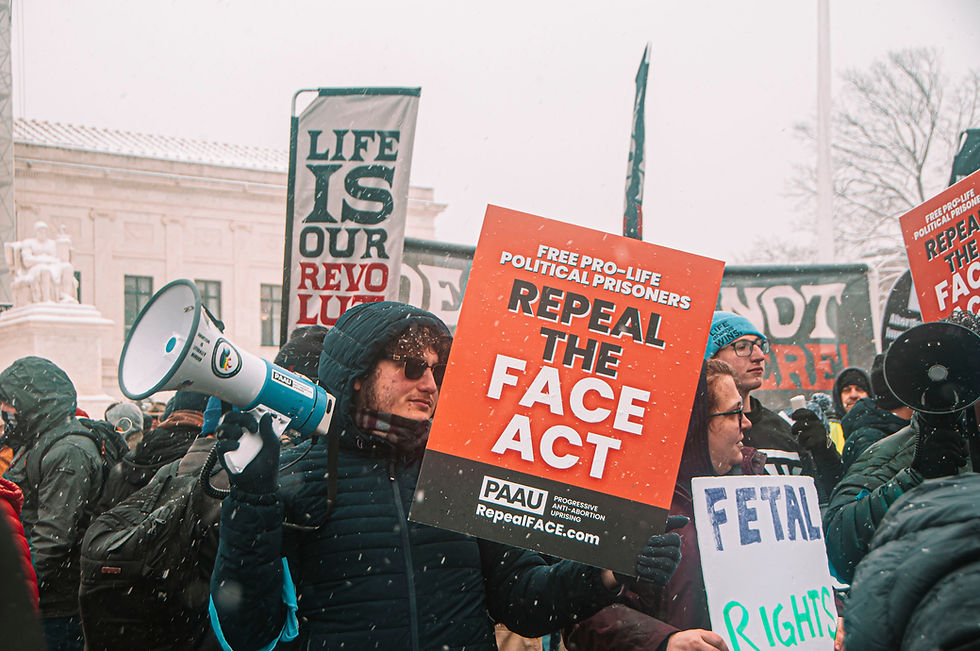Maternity Leave: Is It That Big of a Deal?
- mcoswalt
- Nov 3, 2021
- 3 min read
Updated: Nov 18, 2021
—
Lately, my crusade for maternity leave at work has felt like a logic puzzle that no one will explain the rules to. I was recently told quite frankly that I do not qualify for “bonding time” with my baby, as if this was something akin to qualifying for a new cell phone. I’m looking for every option to spend more time on maternity leave than the 6 weeks required by the Americans with Disabilities Act (8 weeks if you have a C-Section). It’s exhausting.
Many from my generation will remember an episode of the sitcom The Office where one of the characters only takes a few days off after having a child, saying she doesn’t need a long maternity leave. She likens maternity leave to some luxurious benefit, and even brings in brownies for her co-workers, talking about how much extra time she had on her days off because her son was sleeping. This use of satire works to deepen the viewer’s dislike and distrust of this particular character, who later reveals she lied about the father of her baby. The Office took for granted that viewers and the “everyman” characters knew maternity leave was so important and caring for an infant so challenging that no one could possibly take this character seriously. But, if you read my last post about the state of maternity leave in the US, you will understand that the lines between satire and reality get eerily blurred.
But why is this so important? Are women using their babies as an excuse to take some lavish vacation? Are companies being unfairly pressured to bend to the whims of new mothers everywhere? Isn’t it hurting businesses to cater to growing families?
The unequivocal answer is: no.
The World Health Organization recommends 16 weeks of maternity leave. Maternity leave is optimal for the health and bonding of the mother and child, as well as the child’s growth. Generous leave policies greatly reduce postpartum depression, which affects up to one in seven women. Breastfeeding, which the World Health Organization recommends be practiced exclusively for a baby’s first six months, is easier when the mother is at home with the baby. Paternity leave benefits infants, too. Children who have more involved fathers tend to score higher on cognitive assessments.
But what about companies? Surely the workplace is damaged every time a parent has to take off a large amount of time? Actually, there are many benefits to companies offering maternity and other parental paid leave. Small businesses who have competitive benefits will create an egalitarian ideal. Parental leave can also be a huge cost-saver in the long run. After California adopted its 2004 paid parental leave law, turnover rates dropped. This is good for business, because replacing an employee costs around $4,000. This skyrockets to over $7,000 for a white collar employee. Since paid parental leave increases the health of both mothers and children, employers can decrease their health insurance costs by allowing more time off.
Paid family leave also has great benefits for the area it is implemented in. California was the first state to offer mandated paid family leave, and it was mostly found to have a positive effect on women’s wages in the labor force. Under this law, new moms were 17% more likely to return to work within a year of childbirth. Within the second year of their child’s life, women spent more time at work. Paid family leave leads to increased wages for women and women returning to the workplace. Paid leave also leads to less government aid being spent on those who could return to the workforce.
It should also be noted that paid family leave can help solve disparities beyond gender inequality and underrepresentation of women in the workplace. Paid family leave can be especially beneficial for low-wage workers and People of Color, who are among the least likely to get these benefits from their employers. According to the research of Maya Rossin-Slater, an associate professor at Stanford University, Black mothers have gained the most from California’s paid family leave law. They become more likely to take maternity leave provided under the law.
With all these benefits, isn’t it time to make paid family leave the law of the land in the United States? This is currently a large topic of debate in the federal government. The New York Times reports that paid family leave is “a cornerstone of President Biden’s economic agenda.” Stay tuned for my next post on more details about how likely it is we will see some sort of paid leave soon!



Comments